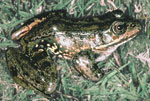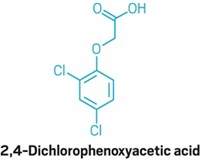Advertisement
Grab your lab coat. Let's get started
Welcome!
Welcome!
Create an account below to get 6 C&EN articles per month, receive newsletters and more - all free.
It seems this is your first time logging in online. Please enter the following information to continue.
As an ACS member you automatically get access to this site. All we need is few more details to create your reading experience.
Not you? Sign in with a different account.
Not you? Sign in with a different account.
ERROR 1
ERROR 1
ERROR 2
ERROR 2
ERROR 2
ERROR 2
ERROR 2
Password and Confirm password must match.
If you have an ACS member number, please enter it here so we can link this account to your membership. (optional)
ERROR 2
ACS values your privacy. By submitting your information, you are gaining access to C&EN and subscribing to our weekly newsletter. We use the information you provide to make your reading experience better, and we will never sell your data to third party members.
Environment
EPA Protects Endangered Frog
October 30, 2006
| A version of this story appeared in
Volume 84, Issue 44

The endangered California red-legged frog will be protected from 66 pesticides commonly used by farmers as part of a settlement between EPA and a wildlife conservation group. The Oct. 19 agreement, which was approved by the U.S. District Court for the Northern District of California, prohibits use of the pesticides in and adjacent to core habitats of the red-legged frog throughout California until EPA completes a study with the Fish & Wildlife Service to ensure the chemicals are not jeopardizing or contributing to the decline of the species. "This agreement will keep toxic chemicals out of essential habitats for the vanishing red-legged frog," says Peter Galvin, director of the Center for Biological Diversity. Pesticide industry representatives agree that pesticide-application buffer zones are reasonable and effective protection for the frogs until the effects of the chemicals can be assessed. However, CropLife America, the pesticide manufacturers' trade association, says there is no proof that any of the chemicals in question have ever harmed California's shrinking population of red-legged frogs. The species was listed as threatened in 1996 under the Endangered Species Act. In another action, EPA says it has canceled several uses of the pesticide dichlorvos in greenhouses, warehouses, and some pest strips. EPA has been conducting a broad safety review of dichlorvos and other organophosphate chemicals.





Join the conversation
Contact the reporter
Submit a Letter to the Editor for publication
Engage with us on Twitter